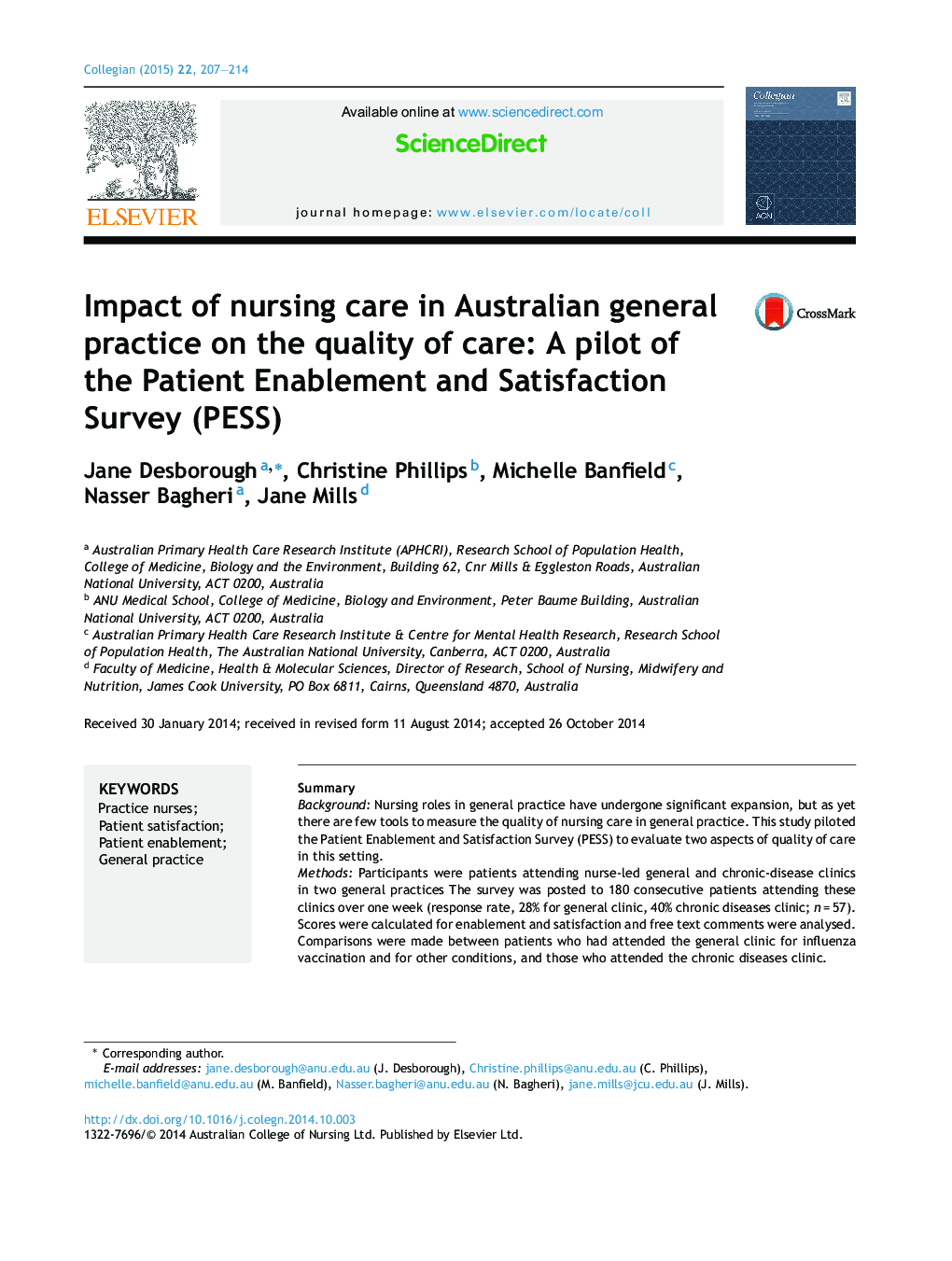| Article ID | Journal | Published Year | Pages | File Type |
|---|---|---|---|---|
| 2647360 | Collegian | 2015 | 8 Pages |
SummaryBackgroundNursing roles in general practice have undergone significant expansion, but as yet there are few tools to measure the quality of nursing care in general practice. This study piloted the Patient Enablement and Satisfaction Survey (PESS) to evaluate two aspects of quality of care in this setting.MethodsParticipants were patients attending nurse-led general and chronic-disease clinics in two general practices The survey was posted to 180 consecutive patients attending these clinics over one week (response rate, 28% for general clinic, 40% chronic diseases clinic; n = 57). Scores were calculated for enablement and satisfaction and free text comments were analysed. Comparisons were made between patients who had attended the general clinic for influenza vaccination and for other conditions, and those who attended the chronic diseases clinic.FindingsOverall results indicate high levels of satisfaction (M = 68.3/75 SD = 8.1) and moderate enablement (M = 4.7/8 SD = 3.2). Significant differences were observed between satisfaction scores for patients attending the chronic disease clinic and the general clinic for influenza vaccinations alone, and between those attending the general clinic for influenza vaccinations versus treatment of other conditions. Patients attending the chronic disease clinic had higher enablement scores than patients receiving influenza vaccinations at the general clinic. Analysis of free-text comments in the survey supported these findings.ConclusionAll patients reported satisfaction with nursing care. Patients receiving chronic disease management reported high levels of enablement. This pilot indicated that the PESS can distinguish between two aspects of the quality of nursing care that may impact on patient outcomes.
